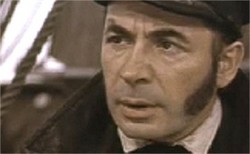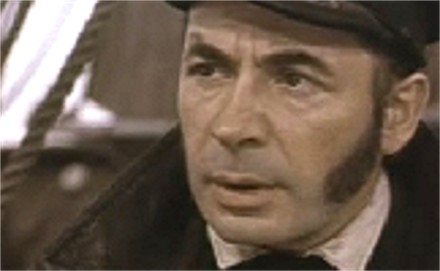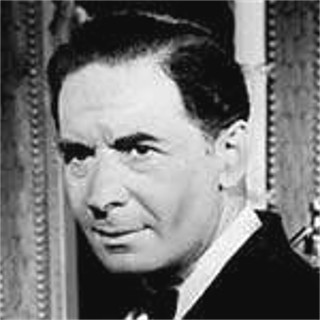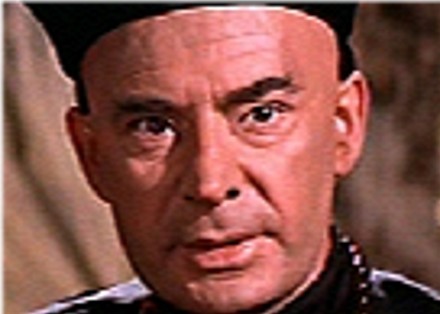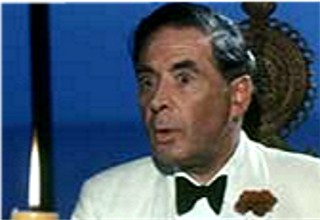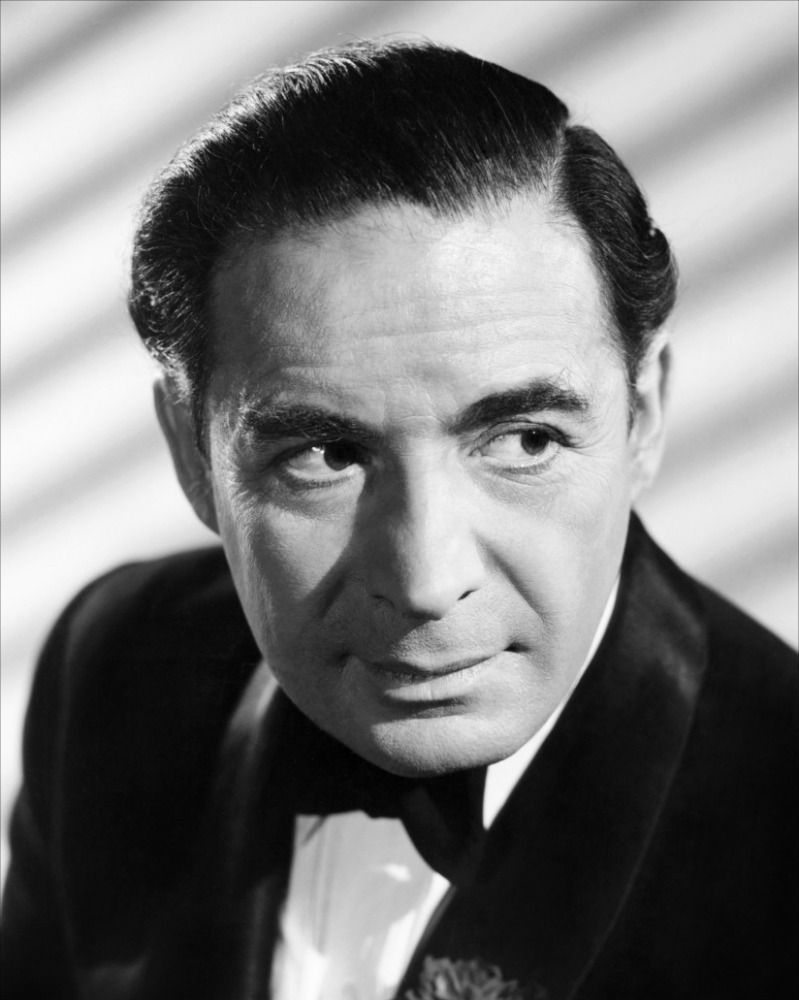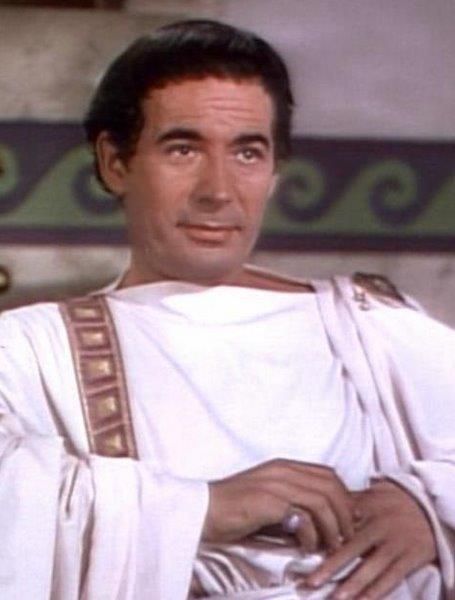School and later studied law at Cambridge. He received his degree as a qualified barrister and began practice in 1928.
Law was not his only interest, and with help of acquaintance Leon M. Lion made his stage debut in 1930. He supplemented his early acting career by
continuing to practice law. In 1933 he met and married Marguerite Van Praag, a casting director at Ealing Studios.
Genn's first screen role was as Shakespeare's Shylock in the UK production "Immortal Gentleman'
in 1935. He had a smooth British accent which fit in well anywhere and his voice was likened to "Black Velvet". In 1936 Douglas Fairbanks Jr.
hired Genn as technical advisor on the law for "Accused" and also gave him a bit part.
He spent 1937 playing film prosecutors and defense attorneys but in 1938 he nabbed a small
Indian character role in "The Drum".
He starred in the stage hit "The Flashing Stream"
also in 1938 which received a nod from Broadway, and Genn made his American debut in 1939 in the play's successful run in New York.
Genn moved on to heartier roles in 1940 with war
approaching. He joined the Royal Artillery and received the rank of Lieutenant Colonel in 1943.
Genn had been awarded the French Croix de Guerre
in 1945, and in 1946 returned to law practice, but not for long. Later that year he returned to film but was recruited by Broadway again for a
role in "Another Part Of The Forest".
Hollywood was waiting and grabbed him for the
film "Mourning Becomes Electra" in 1947. He was also teamed with Rosalind Russell in 1948 in the
film "The Velvet Touch".
Perhaps his best known American film role was as
the sardonic Gaius Petronius Arbiter in "Quo Vadis", (1951). He was a natural for the role
using his trademark poker face charm and sidelong glances, and received a Best Supporting Actor Oscar nomination for it.
The next year he played a realistic William Bradford in "Plymouth Adventure", (1952).
Genn helped grace some of the most ambitious films of the 1950's and into the 60's:
"Moby Dick" (1956), "The Longest Day" (1962)
and "55 Days At Peking" (1963).
He embraced TV Playhouse, both American and British, and US/UK episodic series of that period. He made 6 more appearances on Broadway,
the last in a short run of "The Only Game In Town" in 1968.
All along his velvet voice was used in narrations.
In fact he was the voice of the Royal Coronation programs of 1937 and 1953.
Other interesting films featuring Genn were 1948s
"The Snake Pit" as "Dr. Kik" and "The Strange Case of Dr. Jekyll and Mr. Hyde" 1968.
Leo Genn died of pneumonia after suffering a
heart attack in London January 26, 1978.
School and later studied law at Cambridge. He received his degree as a qualified barrister and began practice in 1928.
Law was not his only interest, and with help of acquaintance Leon M. Lion made his stage debut in 1930. He supplemented his early acting career by
continuing to practice law. In 1933 he met and married Marguerite Van Praag, a casting director at Ealing Studios.
Genn's first screen role was as Shakespeare's Shylock in the UK production "Immortal Gentleman'
in 1935. He had a smooth British accent which fit in well anywhere and his voice was likened to "Black Velvet". In 1936 Douglas Fairbanks Jr.
hired Genn as technical advisor on the law for "Accused" and also gave him a bit part.
He spent 1937 playing film prosecutors and defense attorneys but in 1938 he nabbed a small
Indian character role in "The Drum".
He starred in the stage hit "The Flashing Stream"
also in 1938 which received a nod from Broadway, and Genn made his American debut in 1939 in the play's successful run in New York.
Genn moved on to heartier roles in 1940 with war
approaching. He joined the Royal Artillery and received the rank of Lieutenant Colonel in 1943.
Genn had been awarded the French Croix de Guerre
in 1945, and in 1946 returned to law practice, but not for long. Later that year he returned to film but was recruited by Broadway again for a
role in "Another Part Of The Forest".
Hollywood was waiting and grabbed him for the
film "Mourning Becomes Electra" in 1947. He was also teamed with Rosalind Russell in 1948 in the
film "The Velvet Touch".
Perhaps his best known American film role was as
the sardonic Gaius Petronius Arbiter in "Quo Vadis", (1951). He was a natural for the role
using his trademark poker face charm and sidelong glances, and received a Best Supporting Actor Oscar nomination for it.
The next year he played a realistic William Bradford in "Plymouth Adventure", (1952).
Genn helped grace some of the most ambitious films of the 1950's and into the 60's:
"Moby Dick" (1956), "The Longest Day" (1962)
and "55 Days At Peking" (1963).
He embraced TV Playhouse, both American and British, and US/UK episodic series of that period. He made 6 more appearances on Broadway,
the last in a short run of "The Only Game In Town" in 1968.
All along his velvet voice was used in narrations.
In fact he was the voice of the Royal Coronation programs of 1937 and 1953.
Other interesting films featuring Genn were 1948s
"The Snake Pit" as "Dr. Kik" and "The Strange Case of Dr. Jekyll and Mr. Hyde" 1968.
Leo Genn died of pneumonia after suffering a
heart attack in London January 26, 1978.
Family Members
Sponsored by Ancestry
Advertisement
Advertisement
